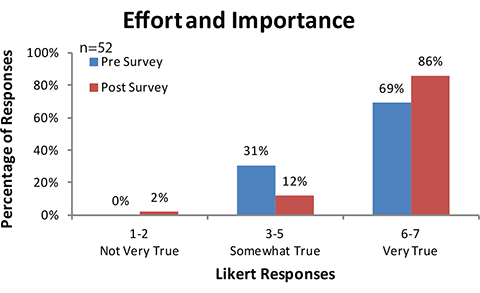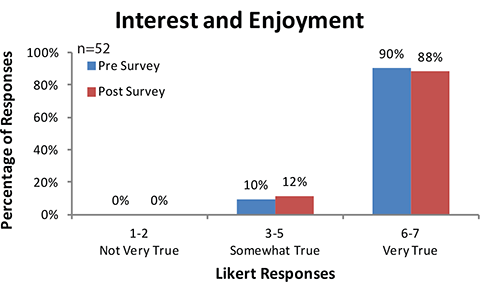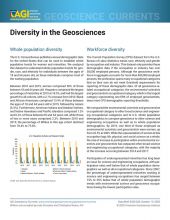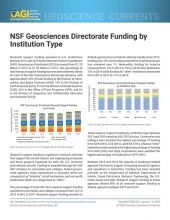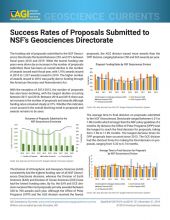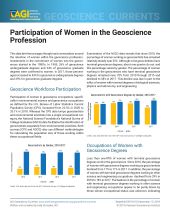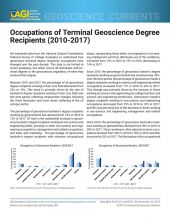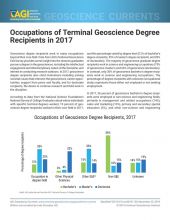In addition to collecting qualitative data that generated the students’ pathways, Houlton surveyed the students about their intrinsic motivation toward pursuing the geosciences. The survey was a 7-point Likert-based scale developed from the Intrinsic Motivation Inventory, which is an instrument developed as part of the Self-Determination Theory.* Data were taken from the initial and follow-up efforts and aggregated to demonstrate students’ change in motivation for pursing a geoscience degree and career. Counts for each graph represent the number of responses to each category (there are several questions for each) and are not indicative of the number of individual people.
Perceived Competence is a measure of self-efficacy: how well one perceives him/herself to perform and complete a task successfully. There were 8 questions about students’ perceived competence in the geosciences, yielding a total of 104 responses.
- Students exhibit moderate to high competencey levels toward the geosciences.
- Levels increased in the follow-up study indicating that as students’ education advanced, the more confident they became in being a geoscientist.
Effort and Importance questions addressed how much effort students put into a geoscience course, lab or task, and consequentially how important this type of work is to them. Interest and Enjoyment questions asked how much the students like this particular discipline and associated activities or courses.
- We see an increase in the amount of students’ effort and importance of geoscience activities in the follow-up study. This may indicate that with more experience in the discipline, the more applicable it is to one‘s future and career.
- The amount of interest and enjoyment remained comparable between the initial and follow-up studies showing that students’ interest and likelihood of pursuing geoscience careers remain high.



